20 Hypoallergenic Cats: Ultimate Guide for Allergy Sufferers
If you love cats but suffer from allergies, don’t worry! Several cat breeds are known for being hypoallergenic, meaning they produce fewer allergens. Here’s a detailed look at 20 hypoallergenic cat breeds so that you can find the perfect feline companion without sneezes and itchy eyes.
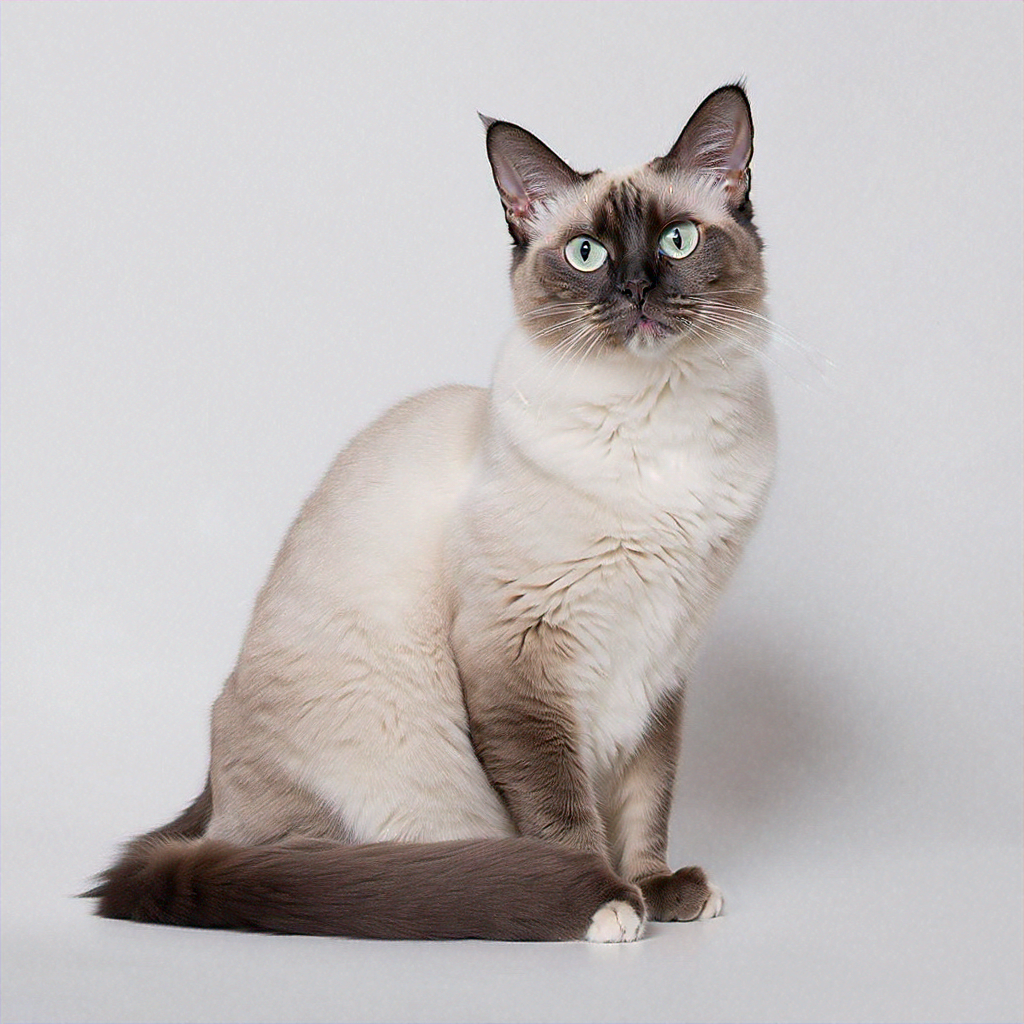
1. Balinese
The Balinese cat, often referred to as the “long-haired Siamese,” is known for its striking blue eyes and silky coat. Despite its luxurious fur, it is considered hypoallergenic.
Why Balinese is a Hypoallergenic Cat?
Balinese cats produce lower levels of the Fel d 1 protein, the primary allergen found in cat saliva. This means less of the allergen is transferred to their fur when they groom themselves.
Personality
Balinese cats are affectionate, intelligent, and social. They love interacting with their human companions and are known for their playful nature.
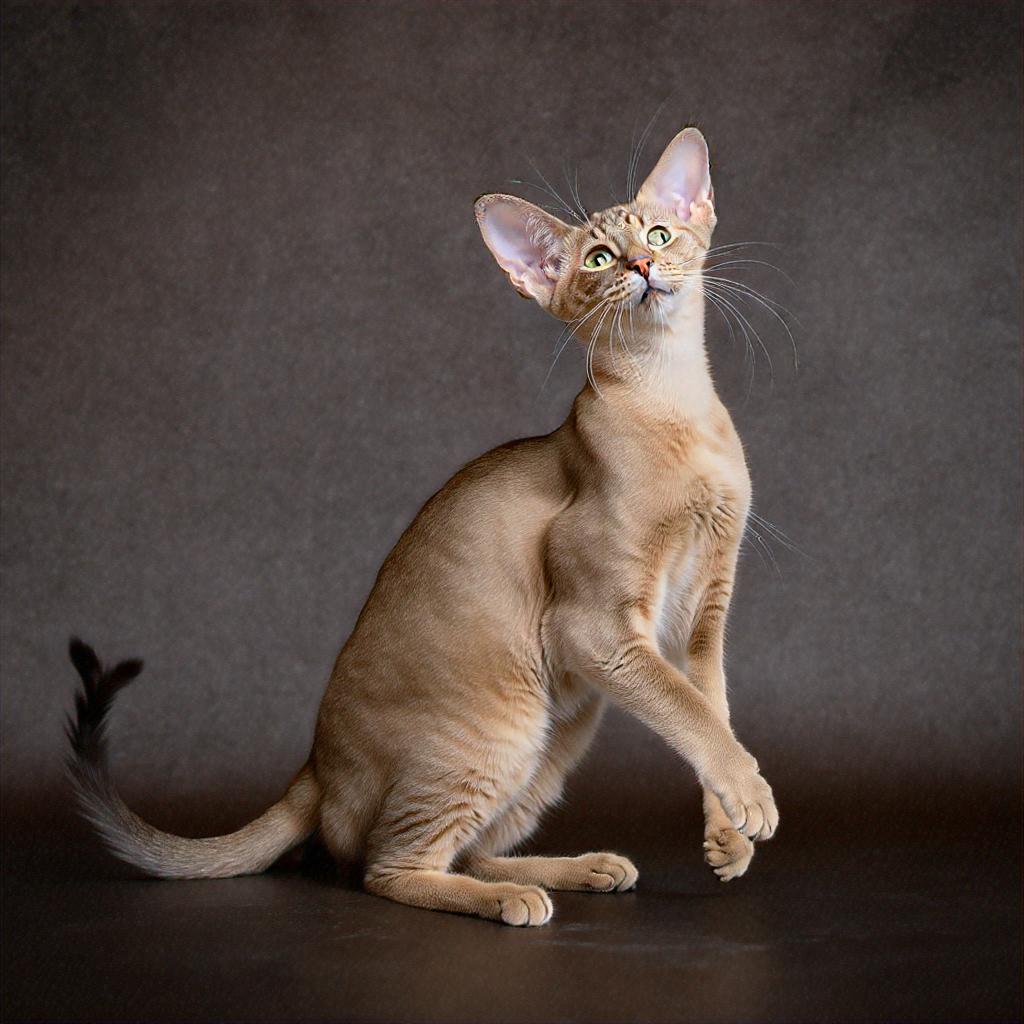
2. Oriental Shorthair
The Oriental Shorthair is a sleek and elegant cat with a wide variety of coat colors and patterns. They are closely related to the Siamese.
Why Oriental Shorthair is a Hypoallergenic Cat?
These cats produce fewer allergens due to their short, fine coat, which sheds less dander than longer-haired breeds.
Personality
Oriental Shorthairs are active, curious, and social. They form strong bonds with their owners and enjoy being involved in all aspects of family life.
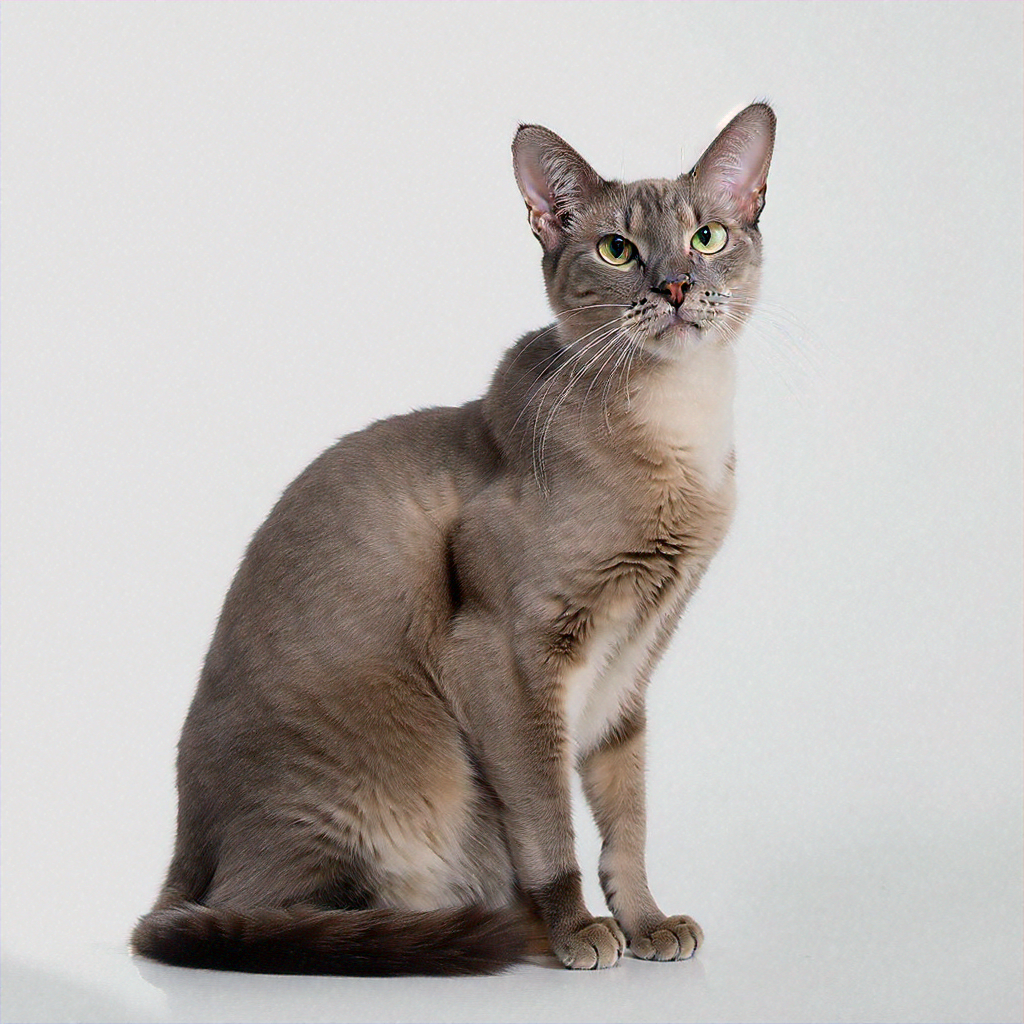
3. Javanese
Javanese cats are similar to Balinese and share many of the same physical traits and hypoallergenic qualities. They have medium-length fur and striking blue eyes.
Why Javanese is a Hypoallergenic Cat?
Like Balinese cats, Javanese produce less of the Fel d 1 protein. Their fur also sheds less, reducing the amount of dander in the environment.
Personality
Javanese cats are playful, vocal, and affectionate. They are intelligent and love interactive play.
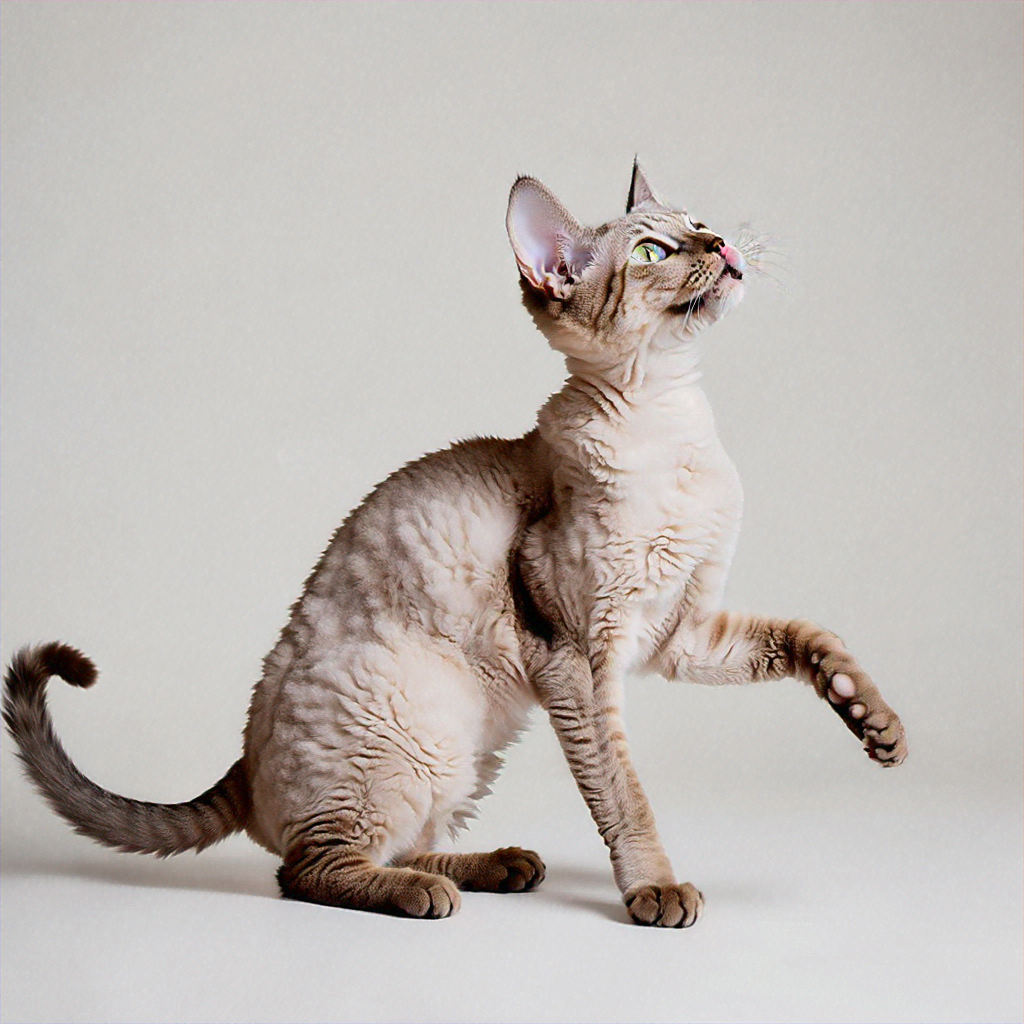
4. Devon Rex
The Devon Rex is a unique-looking breed with large ears, high cheekbones, and a curly coat. They have a distinct appearance that sets them apart from other cats.
Why Devon Rex is a Hypoallergenic Cat?
Their short, curly fur sheds less than other breeds, leading to fewer allergens in your home.
Personality
Devon Rex cats are energetic, mischievous, and affectionate. They love being the center of attention and enjoy spending time with their humans.
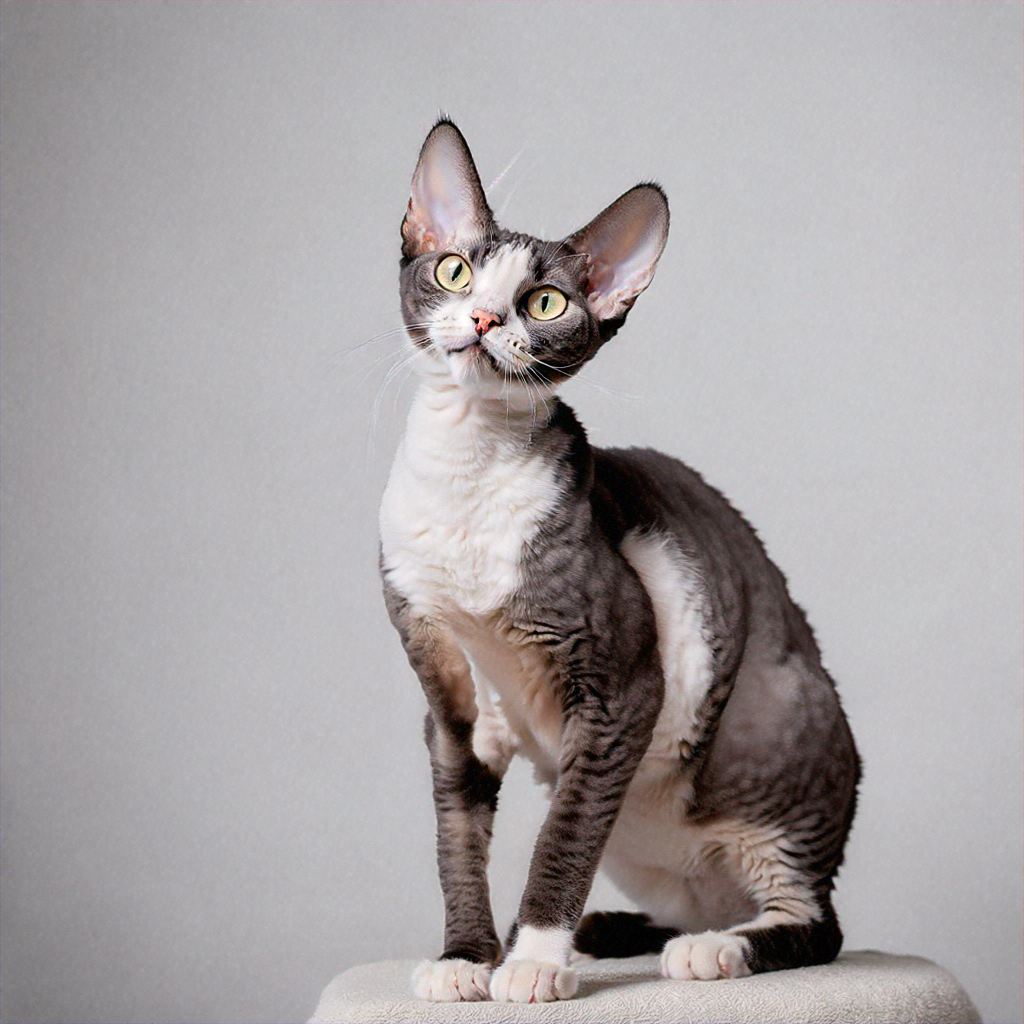
5. Cornish Rex
The Cornish Rex is another breed with a distinctive curly coat. They have a slim, athletic build and large ears.
Why Cornish Rex is a Hypoallergenic Cat?
Cornish Rex cats have fine, short fur that sheds minimally, which helps keep allergen levels low.
Personality
Cornish Rex cats are active, playful, and affectionate. They enjoy interactive games and are known for their acrobatic abilities.
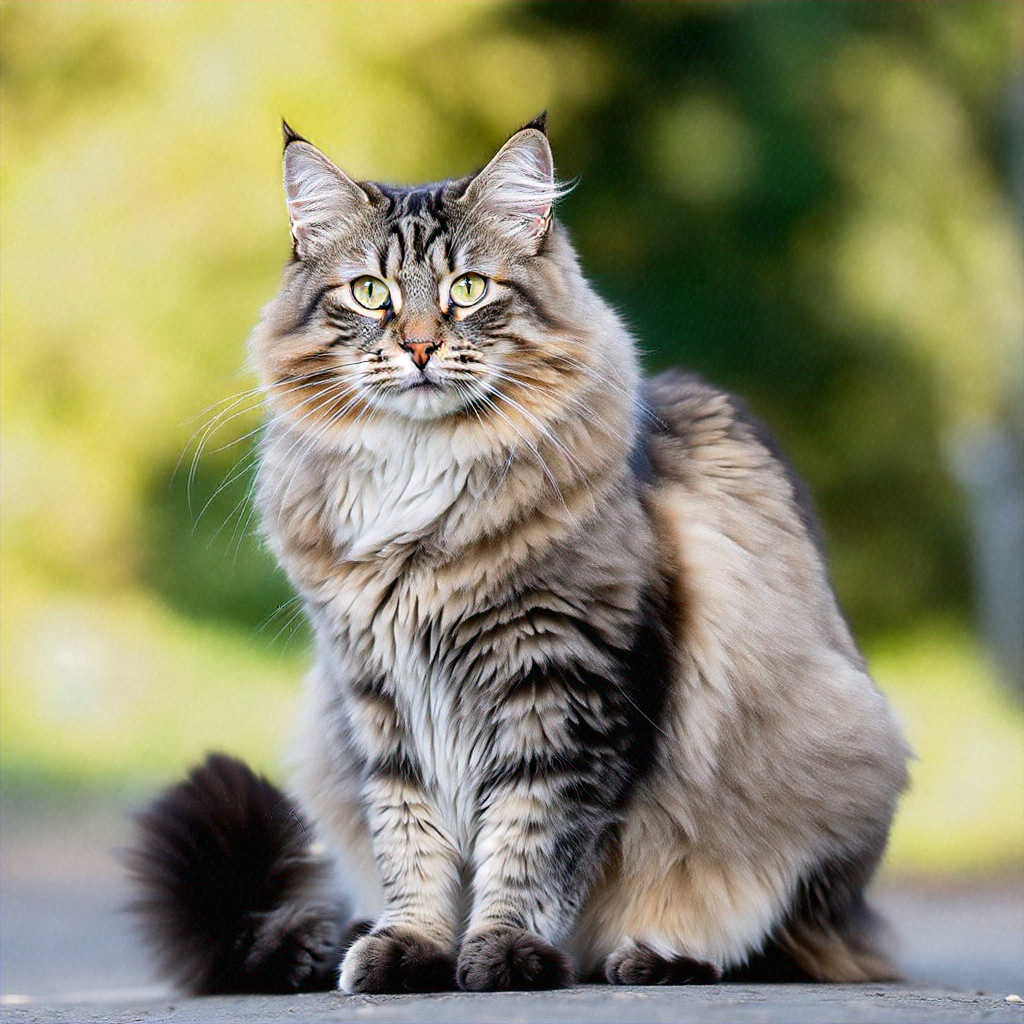
6. Siberian
Despite their thick, luxurious fur, Siberian cats are considered hypoallergenic. They are a natural breed from Russia and have a robust build.
Why Siberian is a Hypoallergenic Cat?
Siberian cats produce lower levels of the Fel d 1 protein, making them a good option for those with allergies.
Personality
Siberian cats are affectionate, intelligent, and playful. They are known for their dog-like loyalty and enjoy spending time with their families.
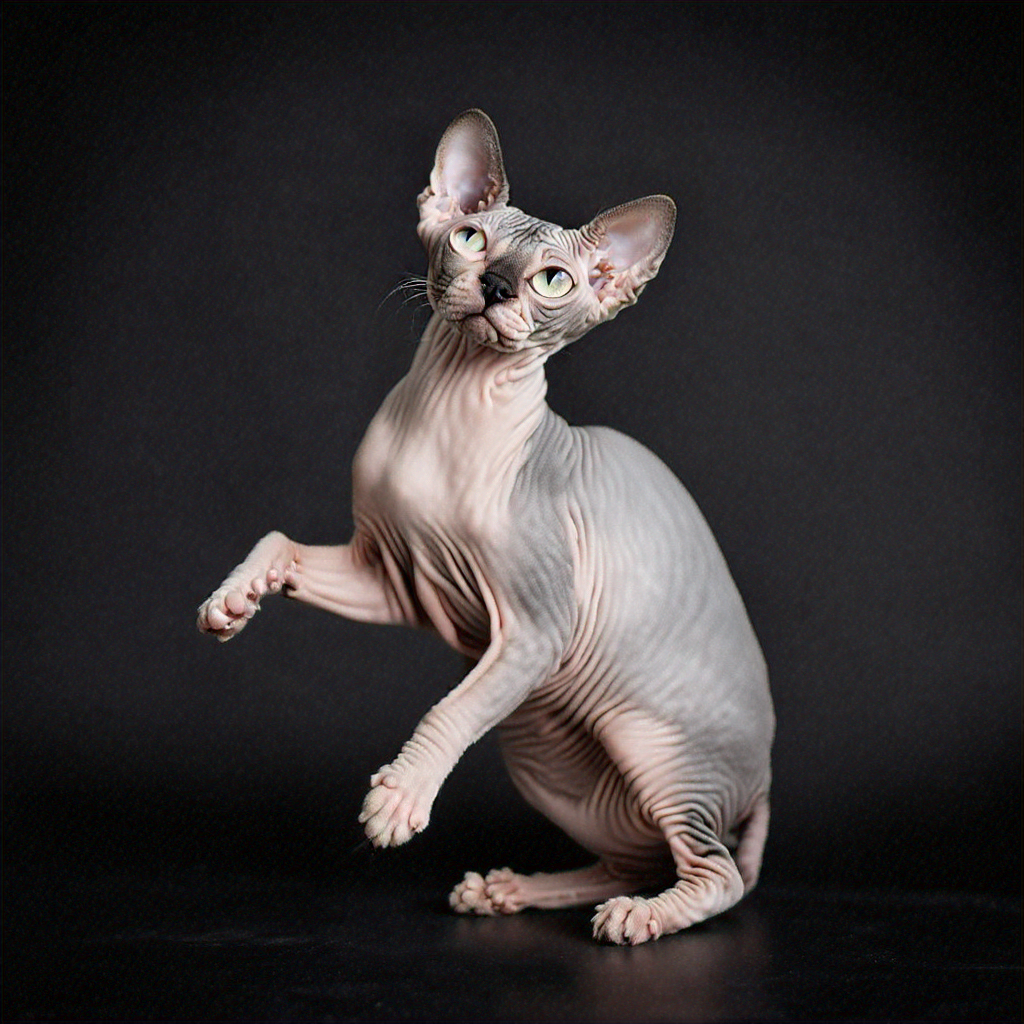
7. Sphynx
The Sphynx is a hairless breed, which might seem like an obvious choice for allergy sufferers. Their lack of fur gives them a unique appearance.
Why Sphynx is a Hypoallergenic Cat?
Without fur to trap allergens, Sphynx cats produce fewer allergens overall. However, they still require regular bathing to remove oil buildup on their skin.
Personality
Sphynx cats are friendly, outgoing, and affectionate. They love to cuddle and stay warm by snuggling with their human companions.
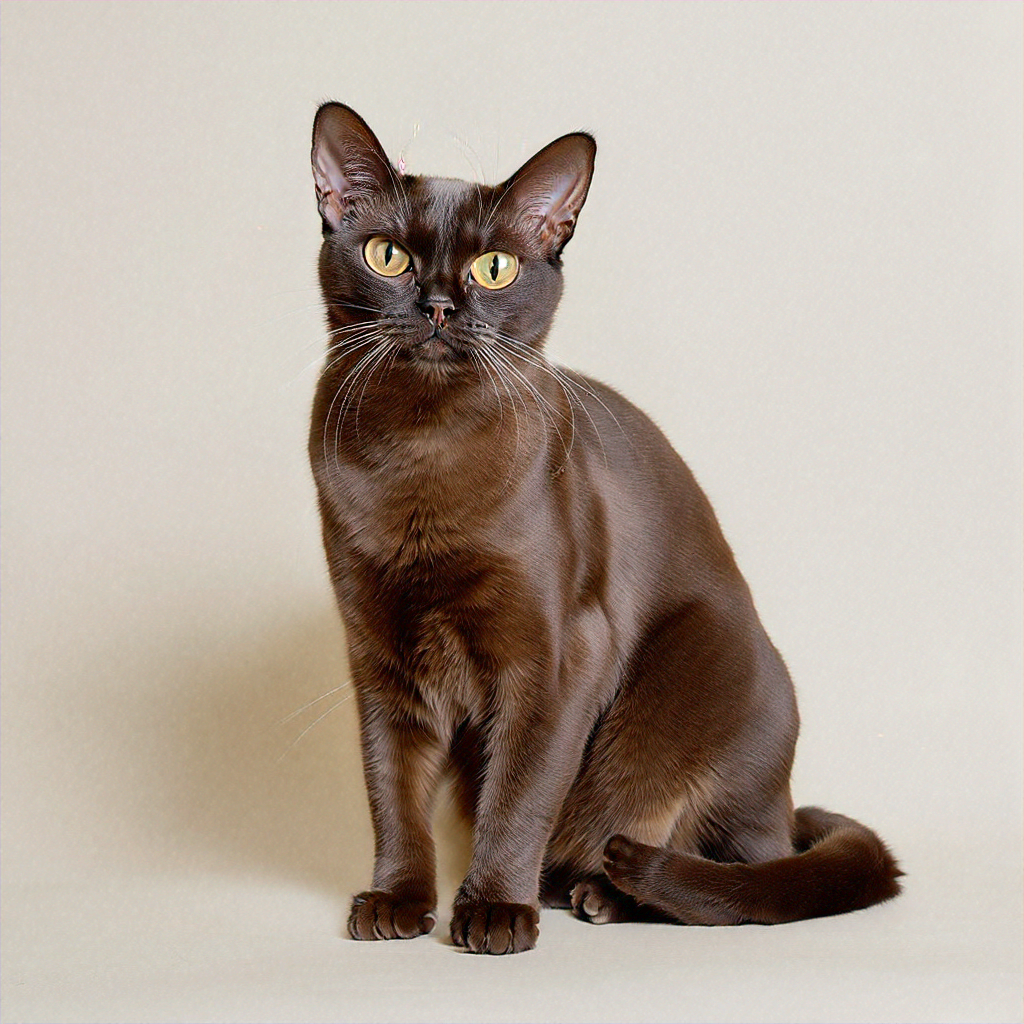
8. Burmese
Burmese cats have short, silky coats and a muscular build. They are known for their expressive eyes and loving nature.
Why Burmese is a Hypoallergenic Cat?
Burmese cats produce fewer allergens due to their short fur, which sheds less dander.
Personality
Burmese cats are social, playful, and affectionate. They thrive on human interaction and are known for their friendly and outgoing nature.
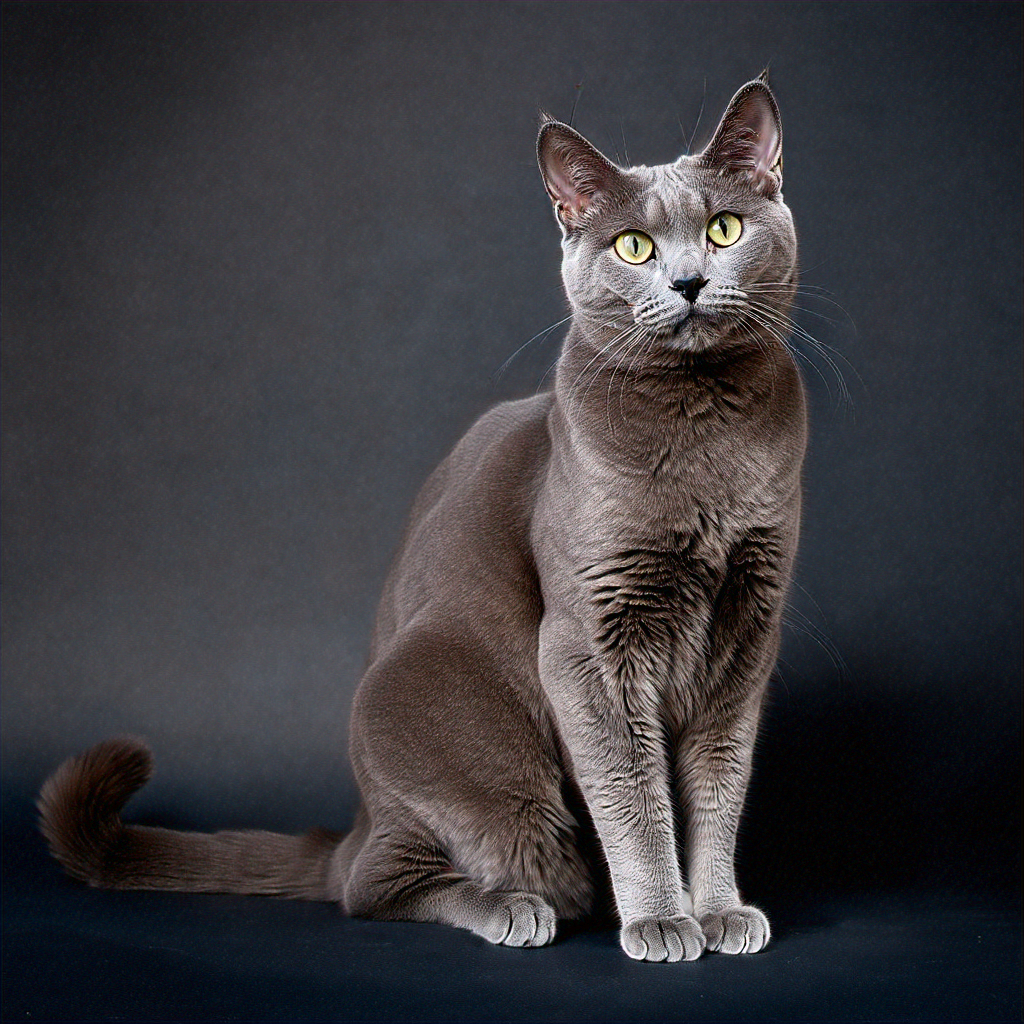
9. Russian Blue
The Russian Blue is known for its dense, plush coat and striking green eyes. This breed has a sleek, elegant appearance.
Why Russian Blue is a Hypoallergenic Cat?
Russian Blues produce fewer allergens, and their dense fur helps to trap dander, preventing it from becoming airborne.
Personality
Russian Blues are gentle, reserved, and intelligent. They form strong bonds with their owners and enjoy a calm, quiet environment.
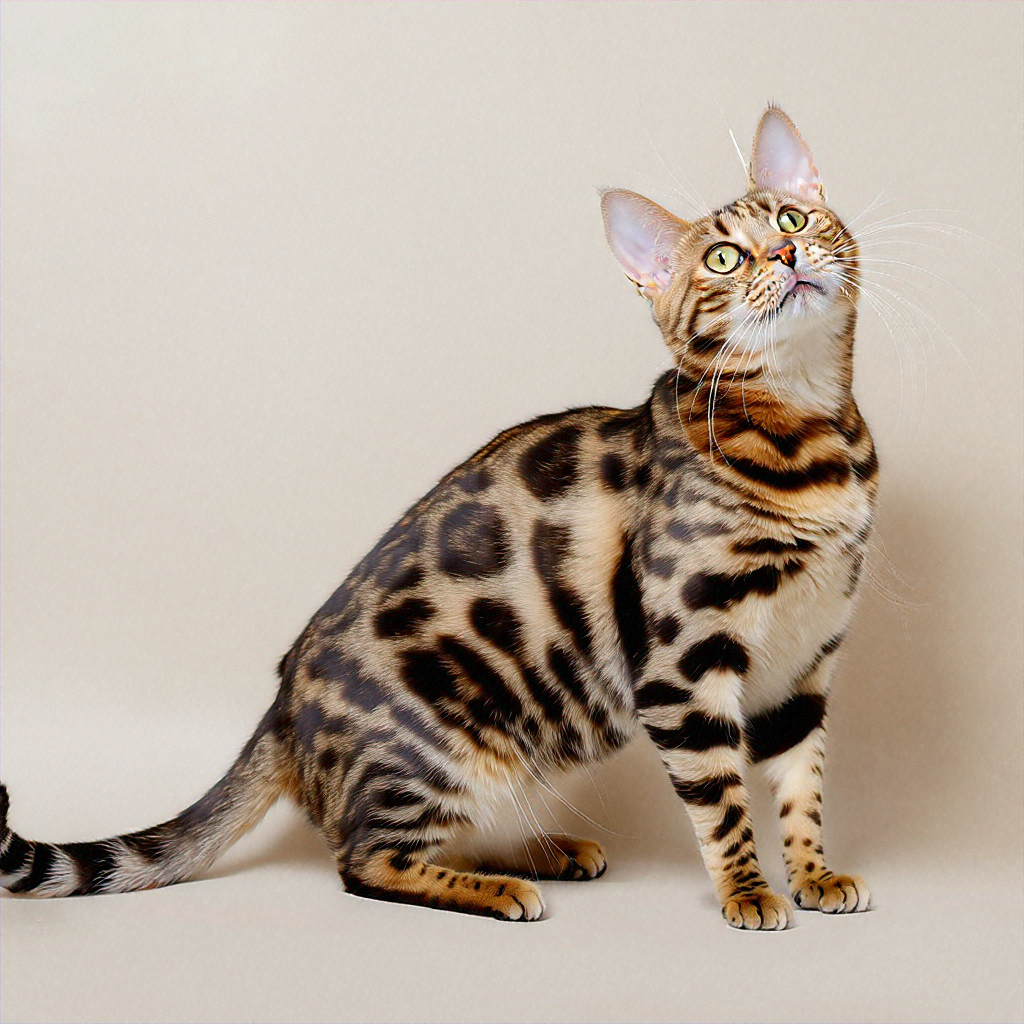
10. Bengal
Bengal cats have a unique, spotted coat that resembles a wild leopard. They are known for their athletic build and high energy levels.
Why Bengal is a Hypoallergenic Cat?
Bengals produce less Fel d 1 protein and have short, sleek fur, which means fewer allergens in your home.
Personality
Bengal cats are active, playful, and intelligent. They enjoy interactive play and need plenty of physical and mental stimulation.
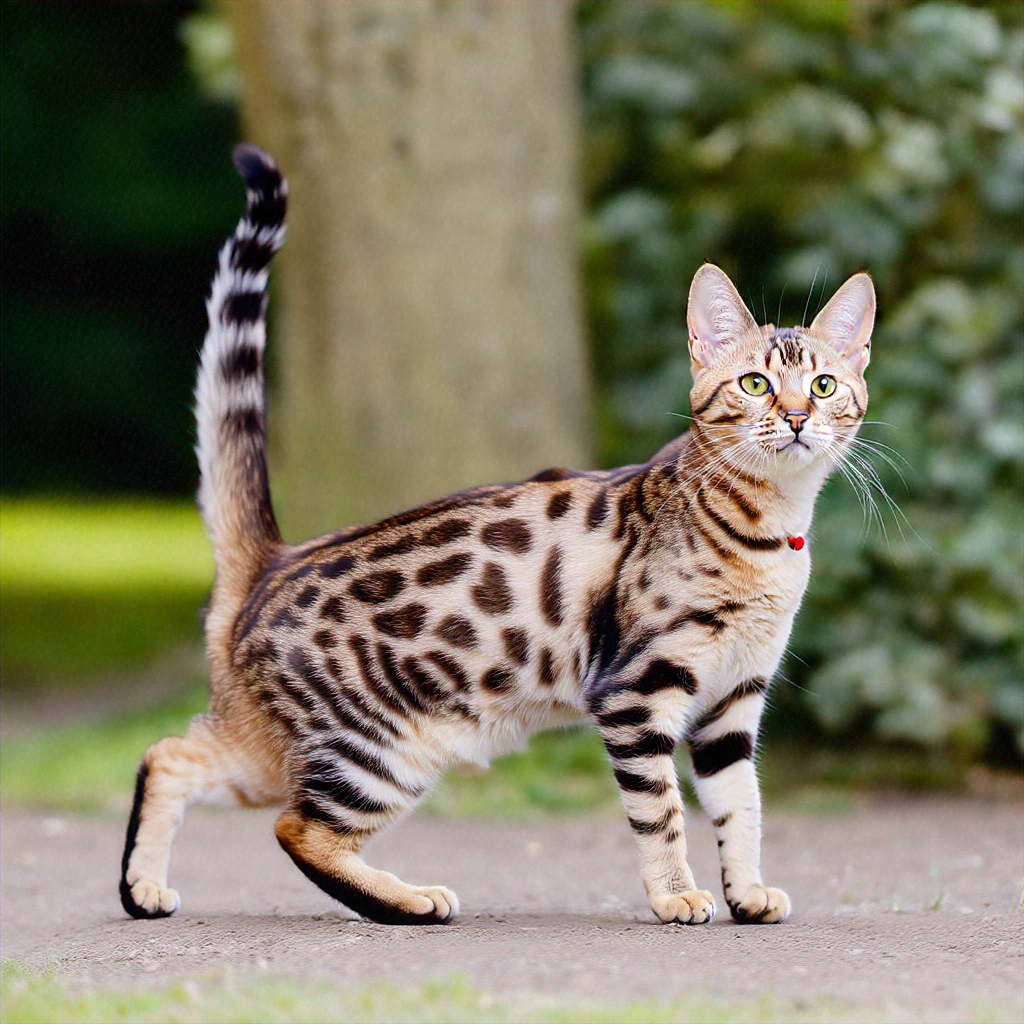
11. Ocicat
The Ocicat looks like a wild ocelot but is entirely domestic. They have a short, spotted coat and a muscular build.
Why Ocicat is a Hypoallergenic Cat?
With their short fur and lower allergen levels, Ocicats are a suitable choice for allergy sufferers.
Personality
Ocicats are active, social, and affectionate. They enjoy being part of family activities and are known for their playful nature.

12. Burmese
Burmese cats are friendly and social, with short coats that produce fewer allergens. They are an excellent choice for both families and individuals.
Why They’re Hypoallergenic
Their short, fine fur sheds less dander, reducing the presence of allergens.
Personality
Burmese cats are affectionate, playful, and social. They enjoy interacting with their human companions and are known for their friendly demeanor.
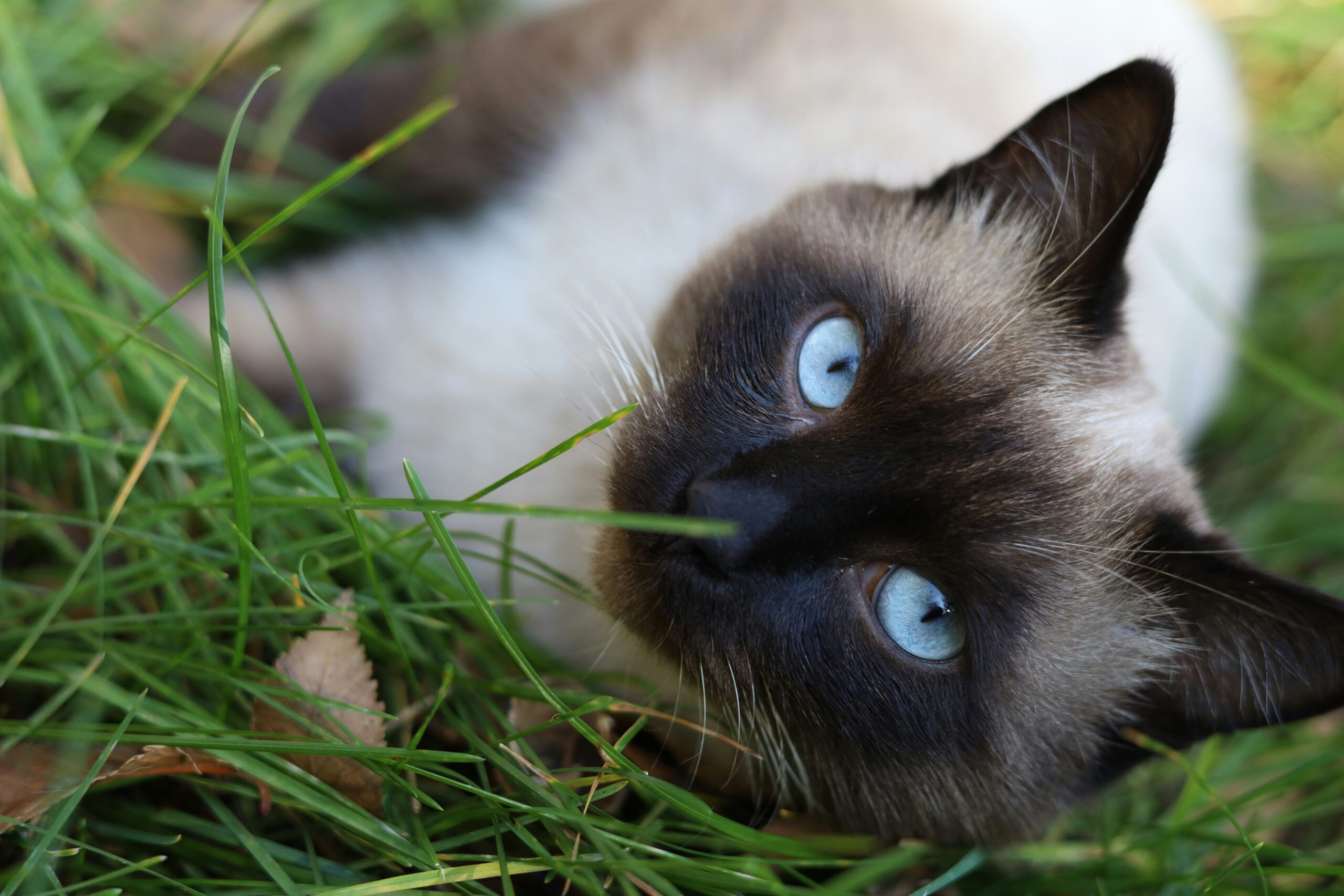
13. Siamese
Why Siamese is a Hypoallergenic Cat?
Siamese cats produce fewer allergens, making them a good option for those with allergies.
Personality
Siamese cats are vocal, social, and affectionate. They build strong connections with their owners and love engaging in interactive play.
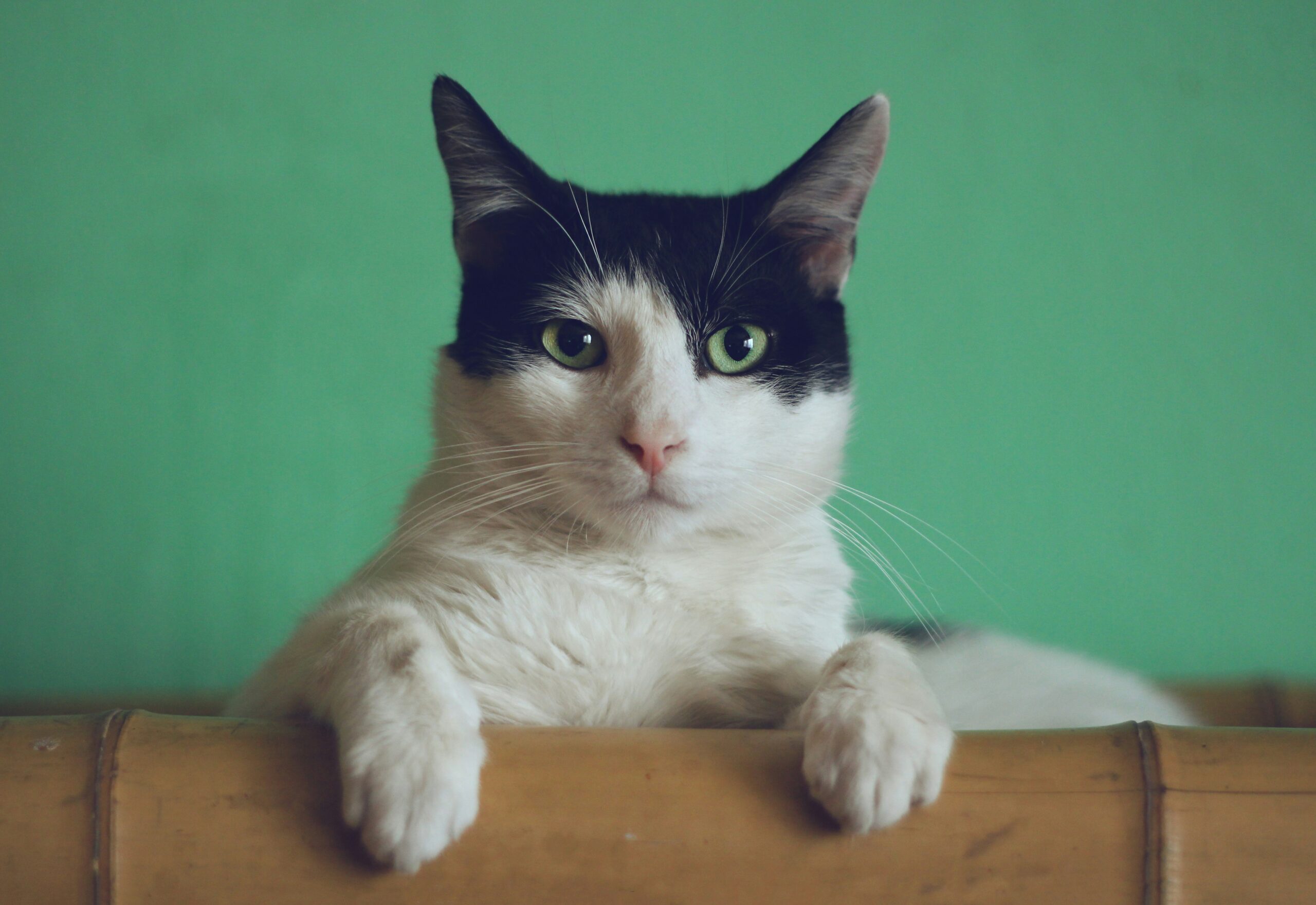
14. LaPerm
LaPerm cats have curly fur that comes in various lengths. They are known for their unique appearance and affectionate nature.
Why LaPerm is a Hypoallergenic Cat?
Their curly coat sheds less dander, which can help reduce allergic reactions.
Personality
LaPerm cats are playful, affectionate, and intelligent. They love interactive play and build strong, lasting bonds with their owners.
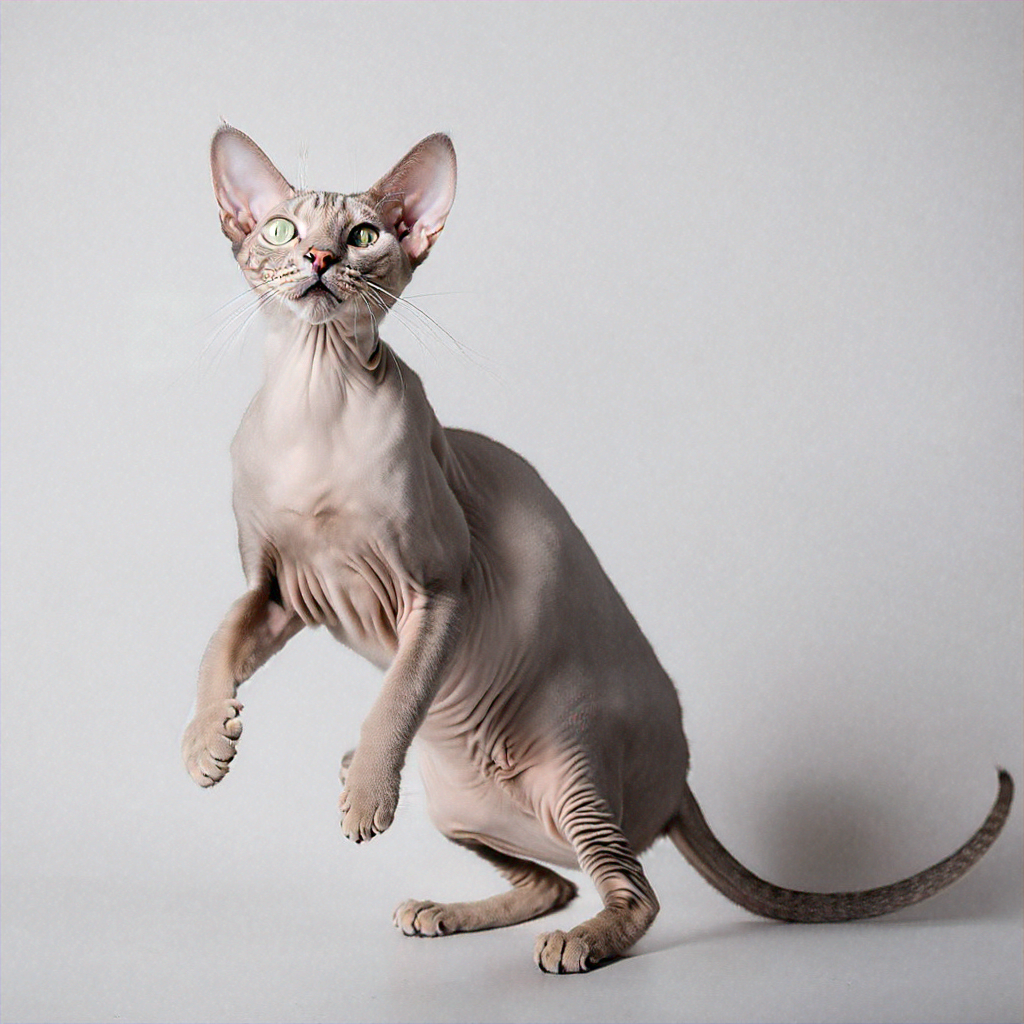
15. Peterbald
The Peterbald is a hairless or nearly hairless breed from Russia. They have a sleek, elegant appearance and are known for their affectionate nature.
Why Peterbald is a Hypoallergenic Cat?
With minimal fur, Peterbald cats produce fewer allergens. Regular bathing is essential to prevent oil buildup on their skin.
Personality
Peterbald cats are social, affectionate, and playful. They love being around people and are known for their friendly and outgoing personalities.
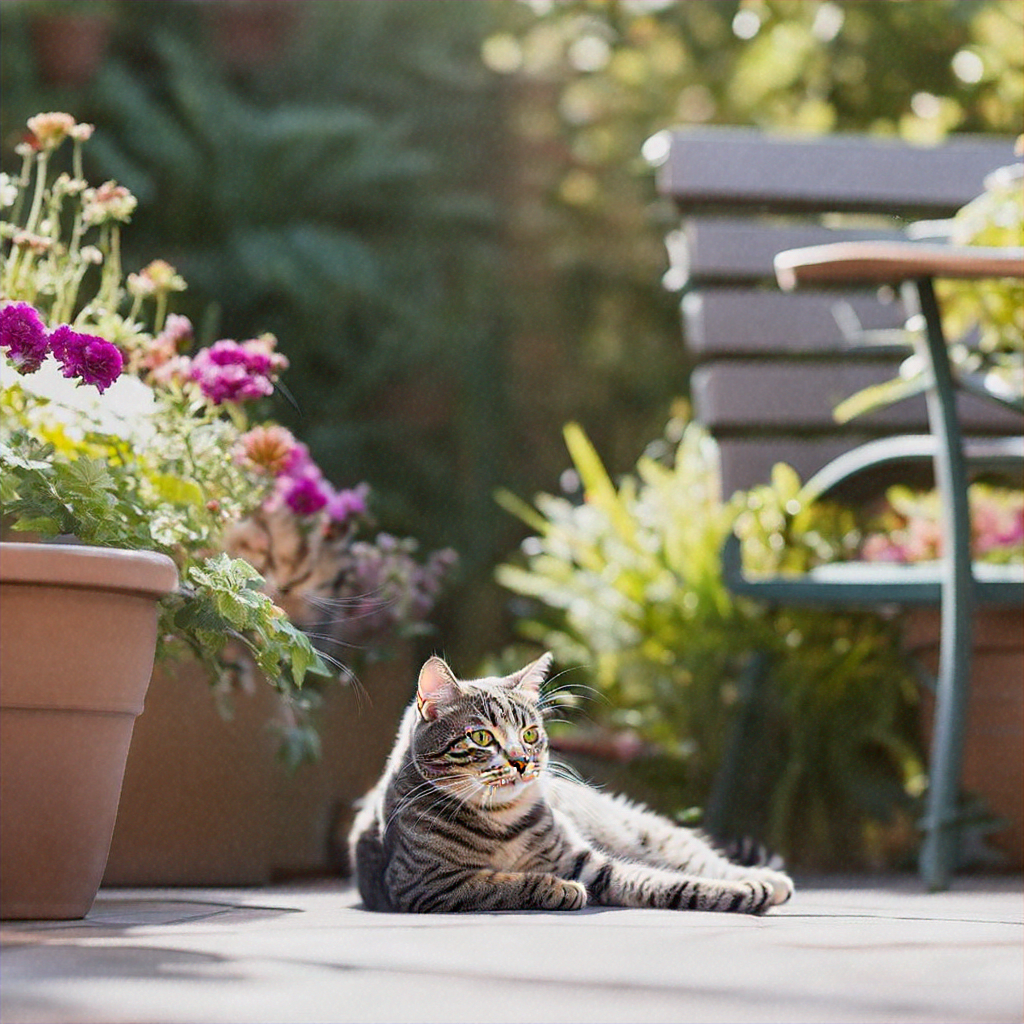
16. American Shorthair
American Shorthair cats have a robust build and short, dense fur. They are renowned for their friendly and easygoing nature.
Why They’re Hypoallergenic
Their short coat sheds less dander, making them a good choice for people with allergies.
Personality
American Shorthairs are affectionate, social, and playful. They enjoy interacting with their human companions and are known for their friendly demeanor.
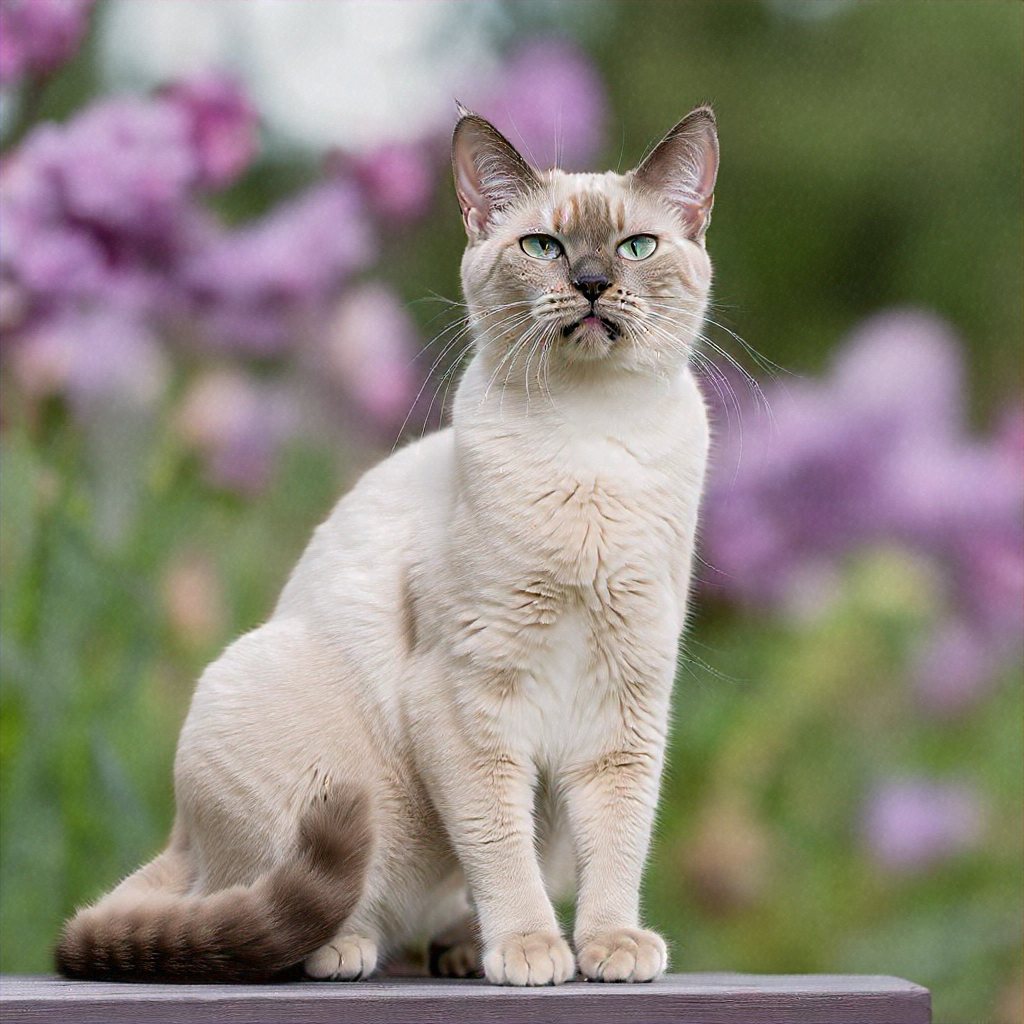
17. Colorpoint Shorthair
Related to the Siamese, the Colorpoint Shorthair has a similar appearance and hypoallergenic qualities. They have a sleek, elegant body and striking blue eyes.
Why Colorpoint Shorthair is a Hypoallergenic Cat?
Colorpoint Shorthairs have short fur and produce fewer allergens, making them a suitable choice for people with allergies.
Personality
Colorpoint Shorthairs are vocal, social, and affectionate. They develop strong bonds with their owners and enjoy engaging in interactive play.
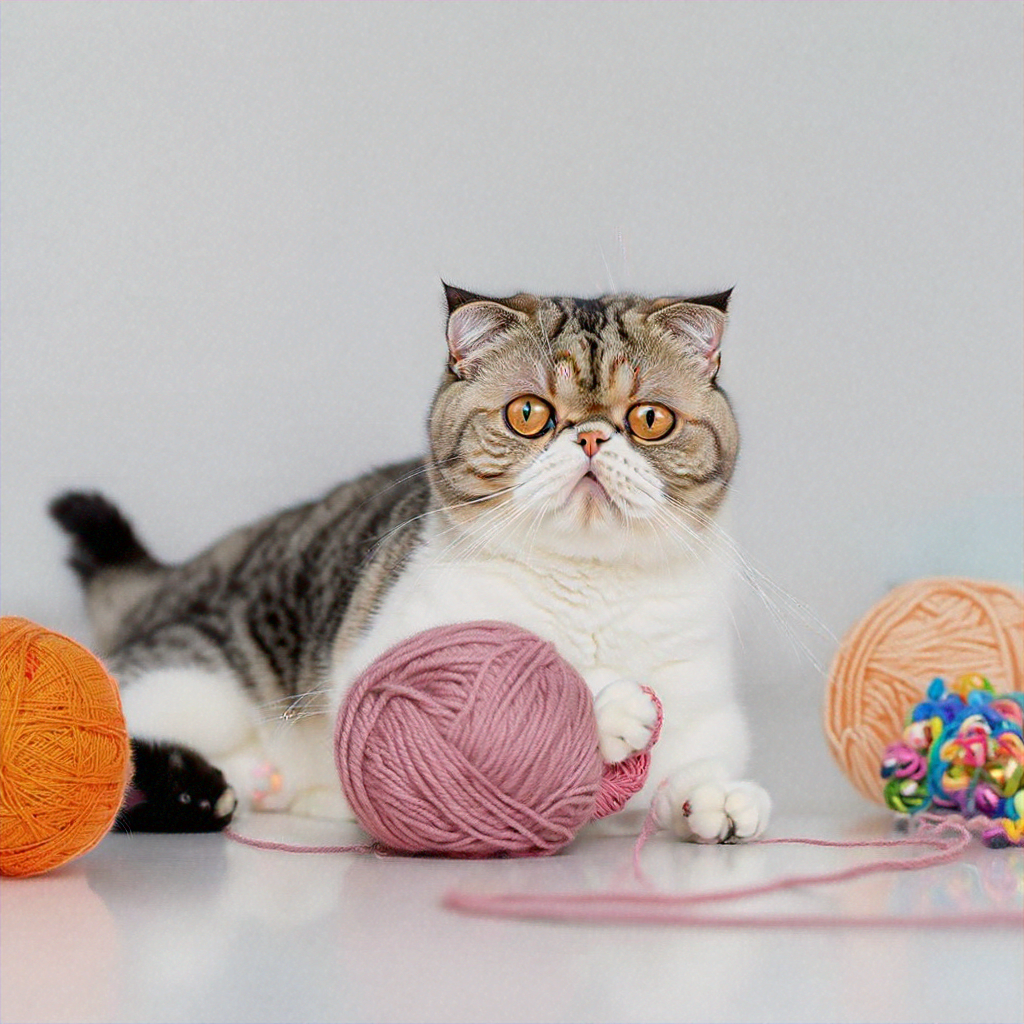
18. Exotic Shorthair
The Exotic Shorthair is similar to the Persian but has a short, dense coat. They have a round face and a sweet expression.
Why Exotic Shorthair is a Hypoallergenic Cat?
Exotic Shorthairs produce fewer allergens and require less grooming than their long-haired counterparts.
Personality
Exotic Shorthairs are calm, affectionate, and easygoing. They enjoy a relaxed environment and form strong bonds with their human companions.
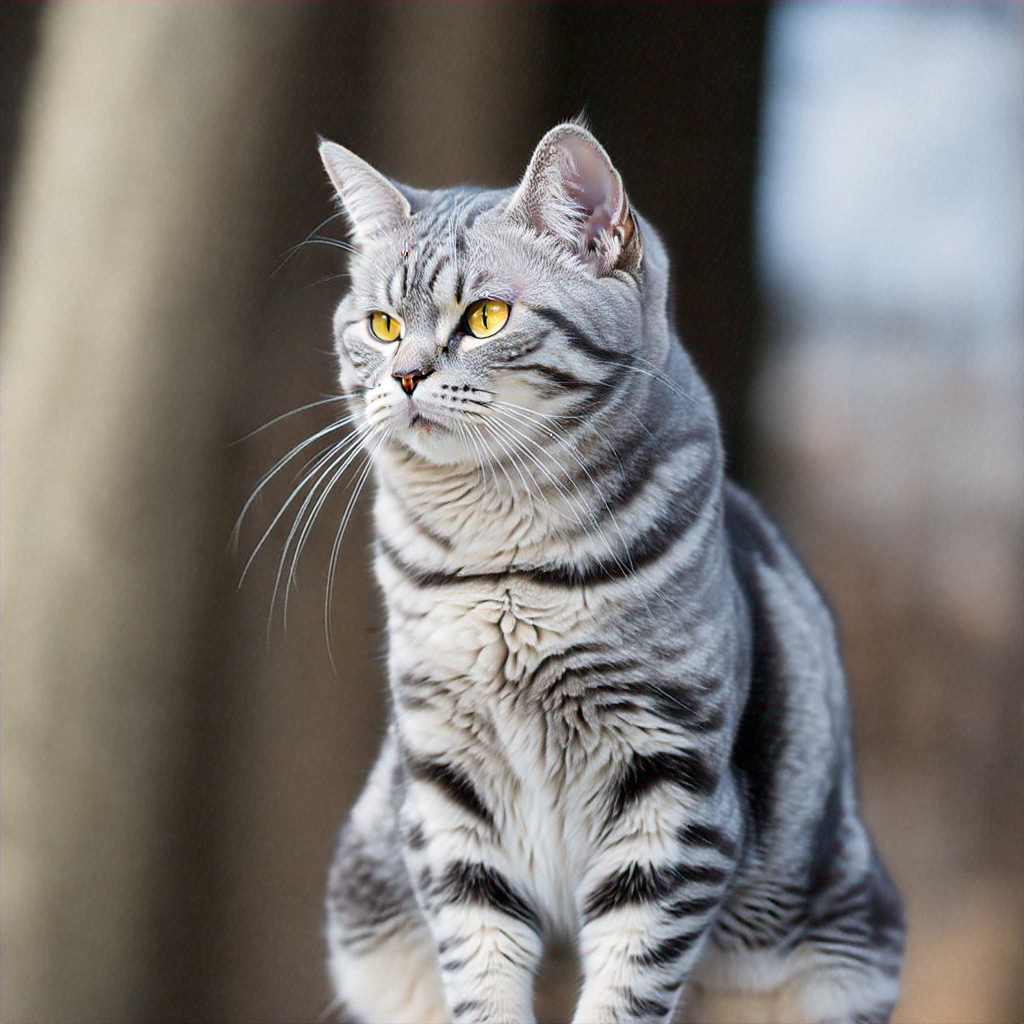
19. American Shorthair
American Shorthair cats have a robust build and short, dense fur. They are celebrated for their friendly and easygoing nature.
Why American Shorthair is a Hypoallergenic Cat?
Their short coat sheds less dander, making them a good choice for people with allergies.
Personality
American Shorthairs are affectionate, social, and playful. They enjoy interacting with their human companions and are known for their friendly demeanor.
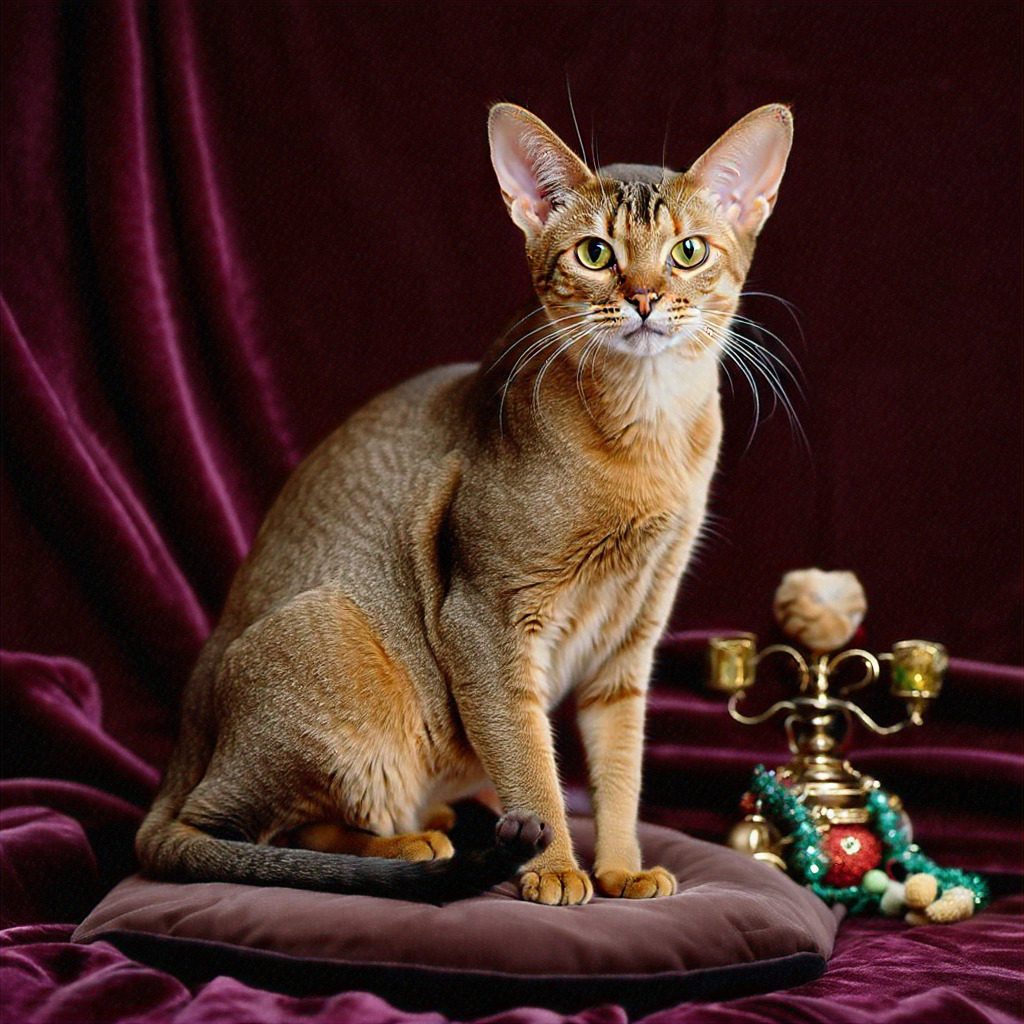
20. Abyssinian
The Abyssinian is known for its ticked coat and playful personality. They have a sleek, athletic build and a distinctive appearance.
Why Abyssinian is a Hypoallergenic Cat?
Abyssinians have short fur and produce fewer allergens, making them a suitable option for allergy sufferers.
Personality
Abyssinians are active, playful, and intelligent. They love interactive play and form strong bonds with their human companions.
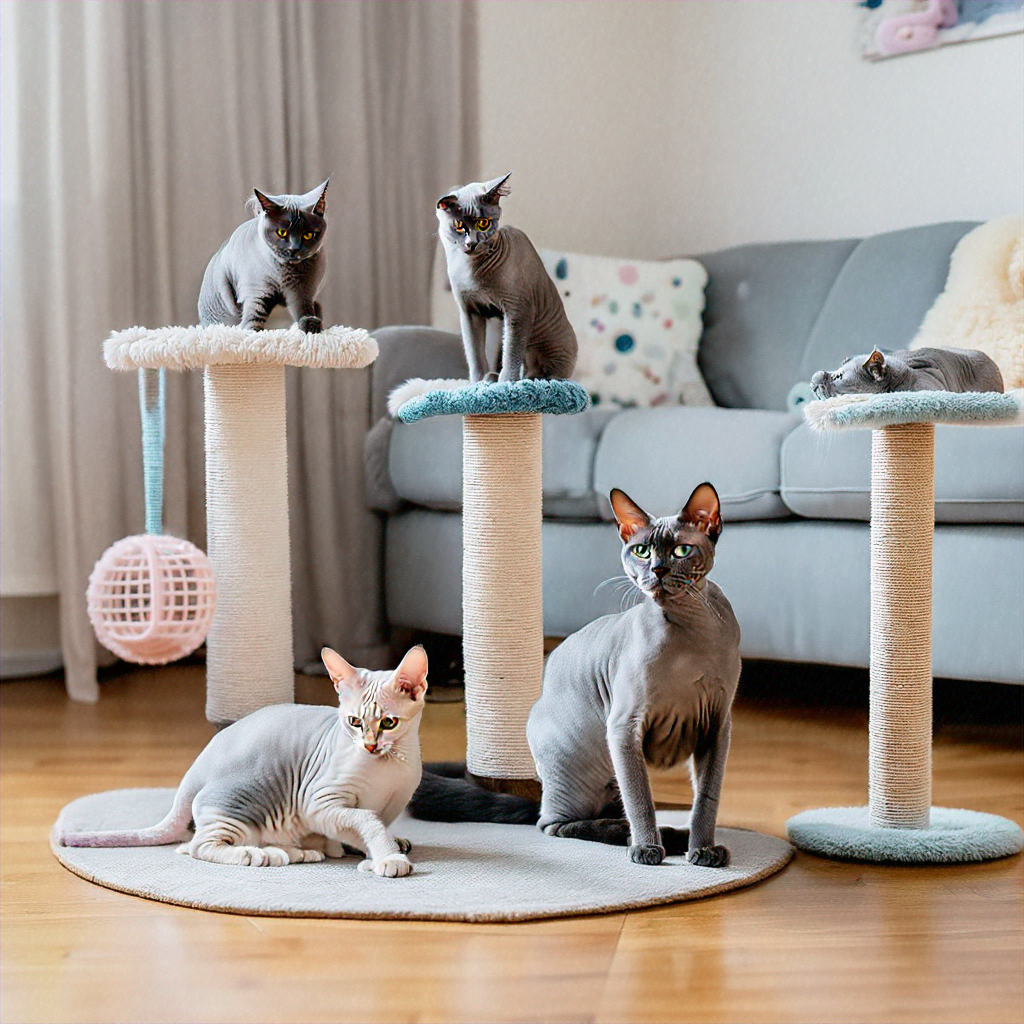
Tips for Managing Cat Allergies
If you love cats but have allergies, managing them is key to a happy life with your feline friend. With some simple strategies, you can reduce allergy symptoms and enjoy your hypoallergenic cat’s company.
Understanding Cat Allergies
What Causes Cat Allergies?
Cat allergies are usually caused by proteins in a cat’s skin, urine, and saliva. These proteins, particularly Fel d 1, spread around your home and can cause allergic reactions.
Common Symptoms of Cat Allergies
- Sneezing
- Runny or stuffy nose
- Itchy, watery eyes
- Coughing and wheezing
- Skin rashes
- Asthma attacks
Diagnosis and Testing
How to Diagnose Cat Allergies
If you think you have a cat allergy, see a doctor or allergist. They can confirm if you’re allergic to cats and help you manage it.
Common Allergy Tests
- Skin Prick Test: Small amounts of allergens are placed on your skin to check for a reaction.
- Blood Test: Measures specific antibodies in your blood that react to cat allergens.
Reducing Exposure to Allergens
Cleaning Your Home
Regular cleaning helps cut down on allergens:
- Vacuum carpets and furniture often with a HEPA filter vacuum.
- Wash your cat’s bedding and toys regularly.
- Clean hard surfaces with a damp cloth.
Using Air Purifiers
Air purifiers with HEPA filters are great for removing allergens from the air. Position them in key areas such as the living room and bedroom.
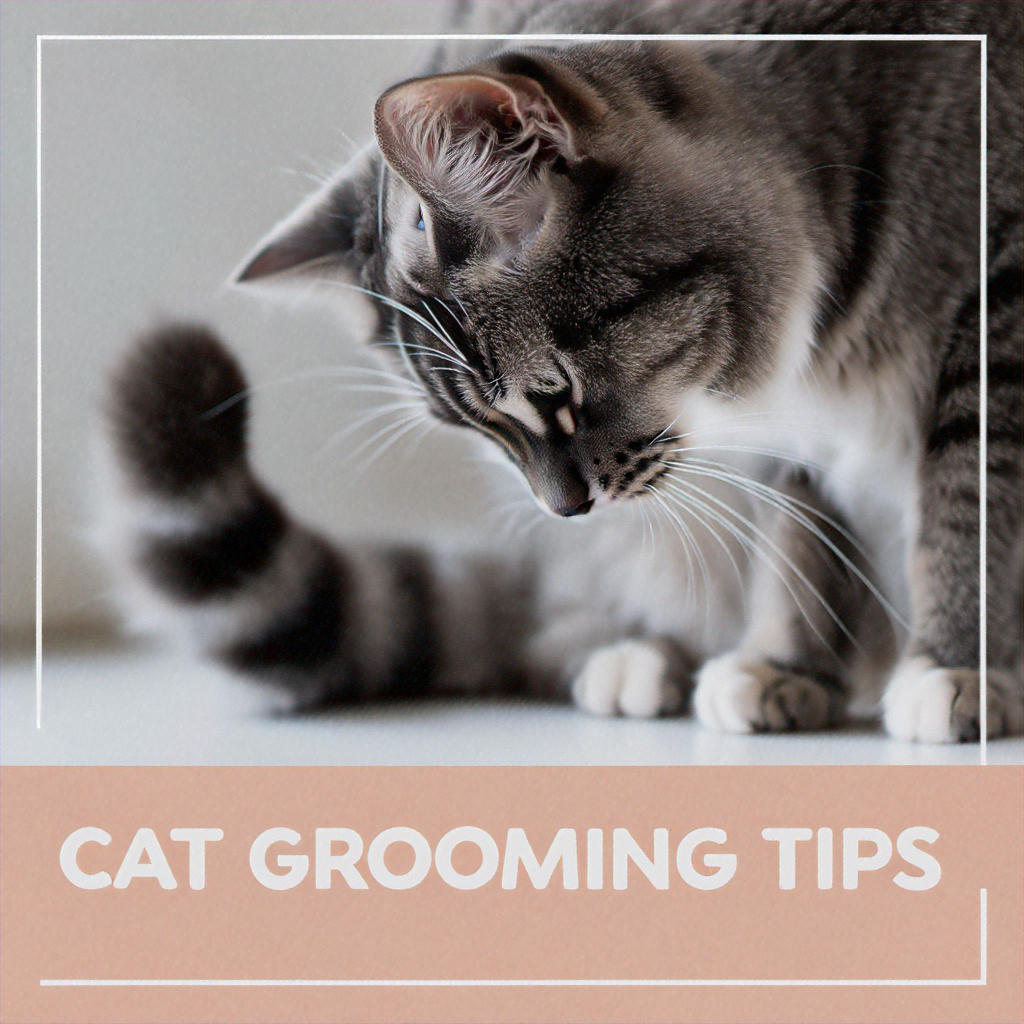
Cat Grooming Tips
Brushing and Bathing
Groom your cat often to reduce fur and dander. Regular brushing and occasional baths with hypoallergenic cat shampoos can help manage allergens.
Using Hypoallergenic Products
Hypoallergenic shampoos and sprays are designed to reduce allergens. They help manage the symptoms of cat allergies.
Managing Allergies with Medication
Over-the-Counter Medications
For mild symptoms, antihistamines, decongestants, and nasal sprays can be effective.
Prescription Options
If over-the-counter meds aren’t enough, your doctor may prescribe stronger treatments or allergy shots.
Natural Remedies for Cat Allergies
Herbal Treatments
Herbal remedies like butterbur and stinging nettle might help. Always contact your doctor before beginning any new treatments.
Dietary Supplements
Supplements like quercetin, bromelain, and omega-3 fatty acids can help with allergy symptoms.
Creating Allergy-Free Zones
Keeping Certain Areas Cat-Free
Designate specific rooms, like the bedroom, as cat-free zones. This limits allergen exposure and can help with symptoms.
Using Allergen-Proof Bedding
Allergen-proof mattresses and pillow covers can reduce allergens where you sleep, improving your comfort.
Improving Indoor Air Quality
Importance of Good Ventilation
Good airflow helps lower allergen levels. Open windows or use fans to keep the air fresh and moving.
Using HEPA Filters
HEPA filters in your HVAC system trap allergens and prevent them from spreading throughout your home. Change filters regularly.
Lifestyle Changes for Allergy Management
Keeping Your Cat Out of the Bedroom
Keeping your hypoallergenic cat out of your bedroom can help reduce allergen exposure while you sleep.
Washing Hands and Changing Clothes
After handling your cat, wash your hands and change your clothes to remove any allergens.
Allergy-Friendly Cat Breeds
Breeds That May Cause Fewer Allergies
Some cat breeds are known to produce fewer allergens and might be better for allergy sufferers. These include:
- Sphynx
- Balinese
- Devon Rex
- Russian Blue
Traits of Hypoallergenic Cats
Hypoallergenic cats produce less of the Fel d 1 protein and may shed less fur, reducing the amount of allergens in your home.
Living with Cat Allergies
Building a Routine
Managing cat allergies involves a consistent routine of cleaning, grooming, and medication to keep symptoms under control.
Emotional Benefits of Having a Cat
Despite the challenges, having a hypoallergenic cat can bring joy and emotional support. The bond with your cat can be very rewarding.
When to Seek Professional Help
Signs You Need an Allergist
If your symptoms are severe or not well managed, it might be time to see an allergist for specialized care and treatment.
Long-Term Management
Allergy shots (immunotherapy) can help build tolerance to cat allergens over time. They can be a long-term solution for severe allergies.

Final Thoughts: Hypoallergenic Cats
Living with cat allergies doesn’t mean you can’t enjoy the companionship of a feline friend. Many hypoallergenic cat breeds, such as the Balinese, Devon Rex, and Russian Blue, produce fewer allergens, making them a great choice for allergy sufferers. By choosing the right breed, keeping your home clean, using air purifiers, and managing your symptoms with medication or natural remedies, you can reduce allergy symptoms and enjoy a happy life with your hypoallergenic cat.
FAQS: Hypoallergenic Cats
Which cat is most hypoallergenic?
The Sphynx cat is often considered the most hypoallergenic because it has no fur to trap allergens.
Can cats be 100% hypoallergenic?
No, cats cannot be 100% hypoallergenic as all cats produce some level of allergens.
Does hypoallergenic cat mean no shedding?
No, hypoallergenic cats can still shed, but they usually produce fewer allergens.
Can I have a cat with allergies?
Yes, you can have a cat with allergies by choosing a hypoallergenic breed and managing your environment and symptoms.
Can I touch a cat if I’m allergic?
Yes, you can touch a cat if you’re allergic, but it’s important to wash your hands and avoid touching your face afterward.
Can I touch a cat if I’m allergic? Yes, you can touch a cat if you’re allergic, but wash your hands afterward and avoid touching your face.
Can I live with a cat if I’m allergic to them? Yes, you can live with a cat if you’re allergic by choosing a hypoallergenic breed and managing your allergies through cleaning, medication, and other strategies.

I am a dedicated writer and expert in cats, with years of experience studying feline behavior, health, and breeds. Passionate about sharing my knowledge, I provide valuable insights and practical advice to help cat lovers understand and care for their furry companions. When not writing, I enjoy spending time with my beloved cats, continually learning and deepening my expertise.
Leave a Reply